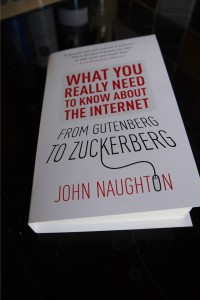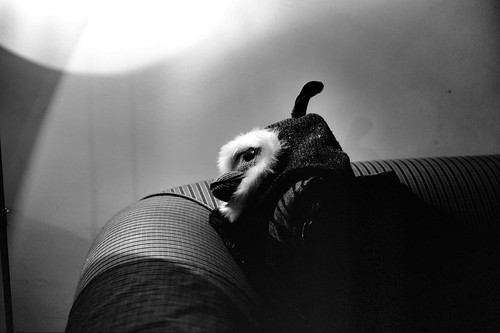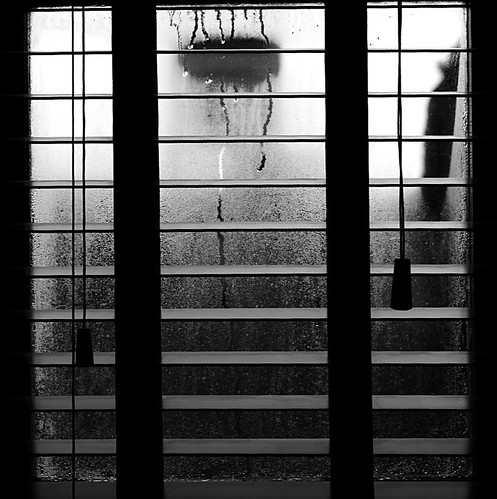It’s out!
Hat trick
A resolution worth making — and keeping
Here’s a resolution for 2012 that’s worth making: write some real letters — you know, the ones written with pens on paper. Suki Bishop thinks they should be love letters, and picks out three stirring examples.
A great love letter isn’t perfect. It’s messy. It’s often bumbling and feverish and grammatically inept. But it’s everything the emoticon is not—specific, personal, unique.
Since, like the rest of us, you’re probably out of practice in this kind of thing, here are three tips from great writers—and lovers—of the past to help you write a love letter that transcends cliché.
1. Get personal. What does it mean to see your beloved? It means paying attention to the things that are unique to him or her. Make your beloved feel seen by describing specific habits, moments, objects, and/or physical attributes that only a lover would see, as Katherine Mansfield described to John Middleton Murry in 1917:
“When you came to tea this afternoon you took a brioche broke it in half & padded the inside doughy bit with two fingers. You always do that with a bun or a roll or a piece of bread—It is your way—your head a little on one side the while… [E]very inch of you is so precious to me. Your soft shoulders—your creamy warm skin, your ears, cold like shells are cold—your long legs and your feet that I love to clasp with my feet—[..] just below that bone that sticks out at the back of your neck you have a little mole [. . .] I could not bear that it should be touched even by a cold wind if I were the Lord.”
2. Command your beloved. While we might hate people telling us what to do, a command from a lover can convey a sense of confidence and urgency, as Virginia Woolf’s command to Vita Sackville-West in 1927:
“Look here Vita—throw over your man, and we’ll go to Hampton Court and dine on the river together and walk in the garden in the moonlight and come home late and have a bottle of wine and get tipsy, and I’ll tell you all the things I have in my head, millions, myriads—They won’t stir by day, only by dark on the river. Think of that. Throw over your man, I say, and come.”
3. Be playful…like Mozart, when he wrote to Constanze Mozart in 1789. Mozart wasn’t afraid to appear foolish. His sense of abandon conveys a love that is stronger than ego or pride.
“Dearest little wife, if only I had a letter from you! If I were to tell you all the things I do with your dear portrait, I think you would often laugh. For instance, when I take it out of its case, I say, ‘Good day, Stanzerl!—Good-day, little rascal, […], little turned-up nose, little bagatelle, Schluck and Druck,’ and when I put it away again, I let it slip in very slowly [… ] then just at the last, quickly, ‘Good night, little mouse, sleep well.’”
These great writers teach us not only about expressing love but also about patience, longing, and restraint.
Satellite reconnaissance before digital photography
Fascinating piece by Alexis Madrigal in The Atlantic.
[US] satellite programs were ridiculous collaborations between optical specialists like the Perkin-Elmer researchers, Lockheed Martin’s satellite makers, Kodak’s film creators, and the Air Force’s pilots. Check out the AP’s description of the program and note the many points of virtuosity.
From 1971 to 1986 a total of 20 satellites were launched, each containing 60 miles (100 kilometers) of film and sophisticated cameras that orbited the earth snapping vast, panoramic photographs of the Soviet Union, China and other potential foes. The film was shot back through the earth’s atmosphere in buckets that parachuted over the Pacific Ocean, where C-130 Air Force planes snagged them with grappling hooks.
All of this is now detailed in the National Reconnaissance Office’s declassification reports about Hexagon, which include a 72-page overview produced in 1978 and marked TOP SECRET.
Interesting (if corny) video about it here.
Imagine a device containing 100km of film. I used to have trouble with less than 1m of 35-mm celluloid.
Wonder what the cameras were like.
1984 wasn’t cancelled, merely postponed
One of the chapters in my new book (out on Thursday next though Amazon seems to be already selling the Kindle edition) is about the potential of computing and network technology to create systems for perfect surveillance and control. I’ve argued that the threat comes from two directions: one is the Orwellian one that we all know about; the other comes from companies like Apple and Google and Facebook. In both cases the connivance — tacit or active – of democratic governments is required. This anguished piece by Thom Holwerda suggests that the penny has dropped for him.
Here we are, at the start of 2012. Obama signed the NDAA for 2012, making it possible for American citizens to be detained indefinitely without any form of trial or due process, only because they are terrorist suspects. At the same time, we have SOPA, which, if passed, would enact a system in which websites can be taken off the web, again without any form of trial or due process, while also enabling the monitoring of internet traffic. Combine this with how the authorities labelled the Occupy movements – namely, as terrorists – and you can see where this is going.
In case all this reminds you of China and similarly totalitarian regimes, you're not alone. Even the Motion Picture Association of America, the MPAA, proudly proclaims that what works for China, Syria, Iran, and others, should work for the US. China's Great Firewall and similar filtering systems are glorified as workable solutions in what is supposed to be the free world.
The crux of the matter here is that unlike the days of yore, where repressive regimes needed elaborate networks of secret police and informants to monitor communication, all they need now is control over the software and hardware we use. Our desktops, laptops, tablets, smartphones, and all manner of devices play a role in virtually all of our communication. Think you’re in the clear when communicating face-to-face? Think again. How did you arrange the meet-up? Over the phone? The web? And what do you have in your pocket or bag, always connected to the network?
This is what [Richard] Stallman has been warning us about all these years – and most of us, including myself, never really took him seriously. However, as the world changes, the importance of the ability to check what the code in your devices is doing – by someone else in case you lack the skills – becomes increasingly apparent. If we lose the ability to check what our own computers are doing, we’re boned.
Thom also points to Cory Doctorow’s chilling talk at the Chaos Computer Congress in Berlin, entitled “The coming war on general computation,” which sets things out pretty clearly.
(Transcript here for those who are too busy to watch all the way through.)
One of the most depressing things now is the discovery that Obama seems not just clueless and passive about this stuff, but that — when push comes to shove — he really sides with the forces of darkness. If SOPA ever makes it through Congress, for example, my guess is that he will sign it. After all, as Thom points out, he signed the NDAA 2012.
The madness of Digital Restrictions Management
Truly, you could not make this up. Jay Rosen is one of the smartest and wisest commentators on the media in the online world. This tweet from him just popped up in my stream. All he wants to do is to get hold of his own stuff. Just another reason to be wary of the Google Books Project. It has lots of things going for it, of course: but one big downside: it will give one company a stranglehold on access to our literary heritage.
I’m reminded of Larry Lessig’s story of arriving in his office in Stanford one morning to find the campus police already installed in it. He was told that they had disconnected his computer from the university network because it was running peer-to-peer software. “Exactly!” they chorused — and then looked bemused as he explained that the stuff he shared using the software was all stuff he’d written himself.
Amazon v the high street
First Observer column of 2012.
Now’s the time of year when columnists are expected to peer into crystal balls. Not being able to find such a device in his local Apple shop, all this columnist can do is to speculate on the implications of some developments that are already highly visible.
Online shopping, for example. A glance down any high street confirms that Amazon & Co is beginning to make inroads into the urban landscape. The costs of running a bricks and mortar shop – in rent, rates, inventory, theft and wages – together with the wafer-thin margins of most retailers (excluding Apple and other purveyors of luxury goods) meant that it was a knife-edge business at the best of times. But the combination of recession and intensified competition from online is proving too much for some retailers, which is why high streets are beginning to have a gap-toothed look…
Marsh reed – detail
Blogger of the Year
Most years, Dave Winer nominates the person who, in his opinion, should be recognised as Blogger of the Year. This year he fingers Richard Stallman as a possible contender for next year. (What? You didn’t know Stallman blogged! Er, neither did I, until Dave told me.) But his Blogger of the Year for now is Seth Godin.
This would be fine except for one thing. For me, most years, Dave Winer is generally Blogger of the Year. He’s the most consistently interesting, perceptive and wise commentator on things that matter to me. Long may he reign.






